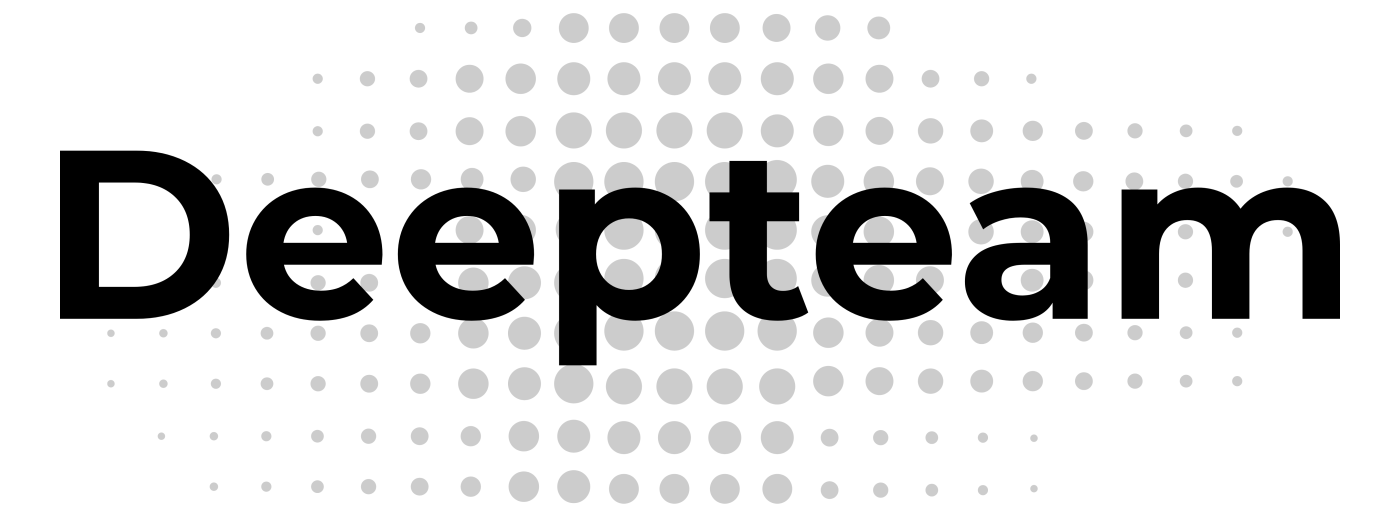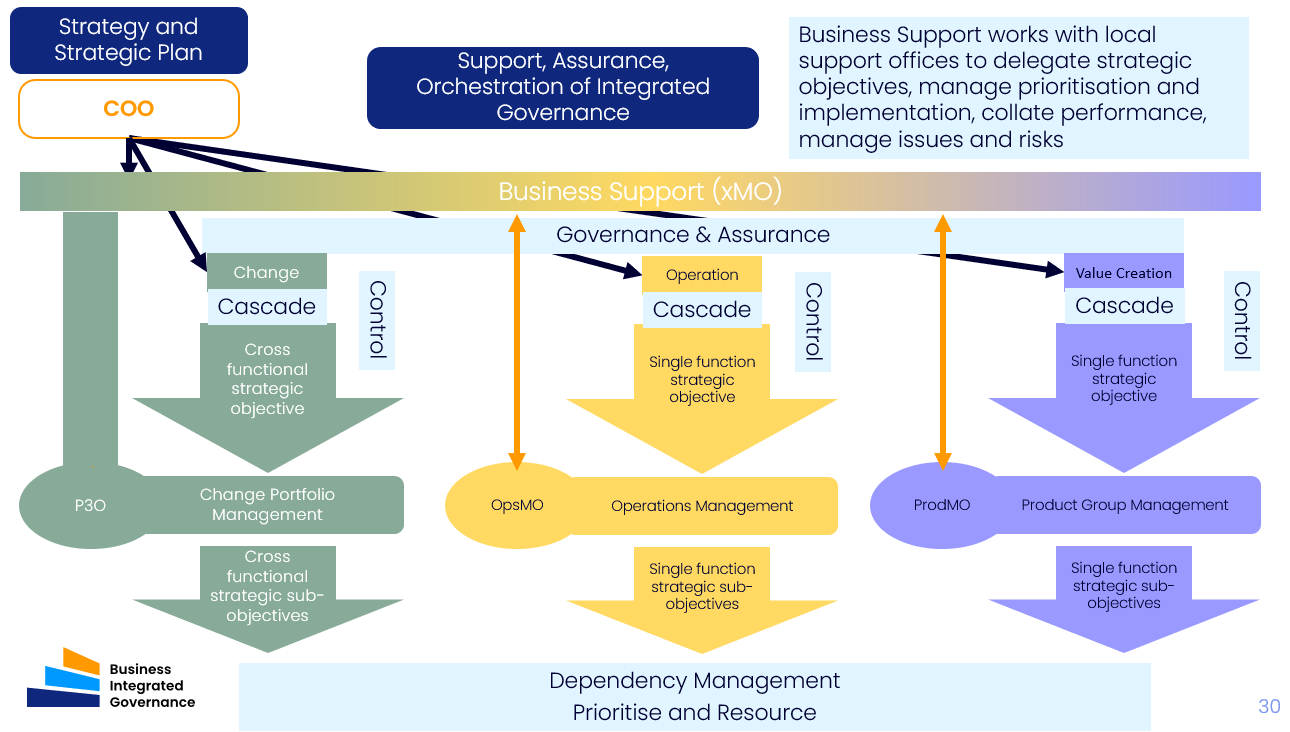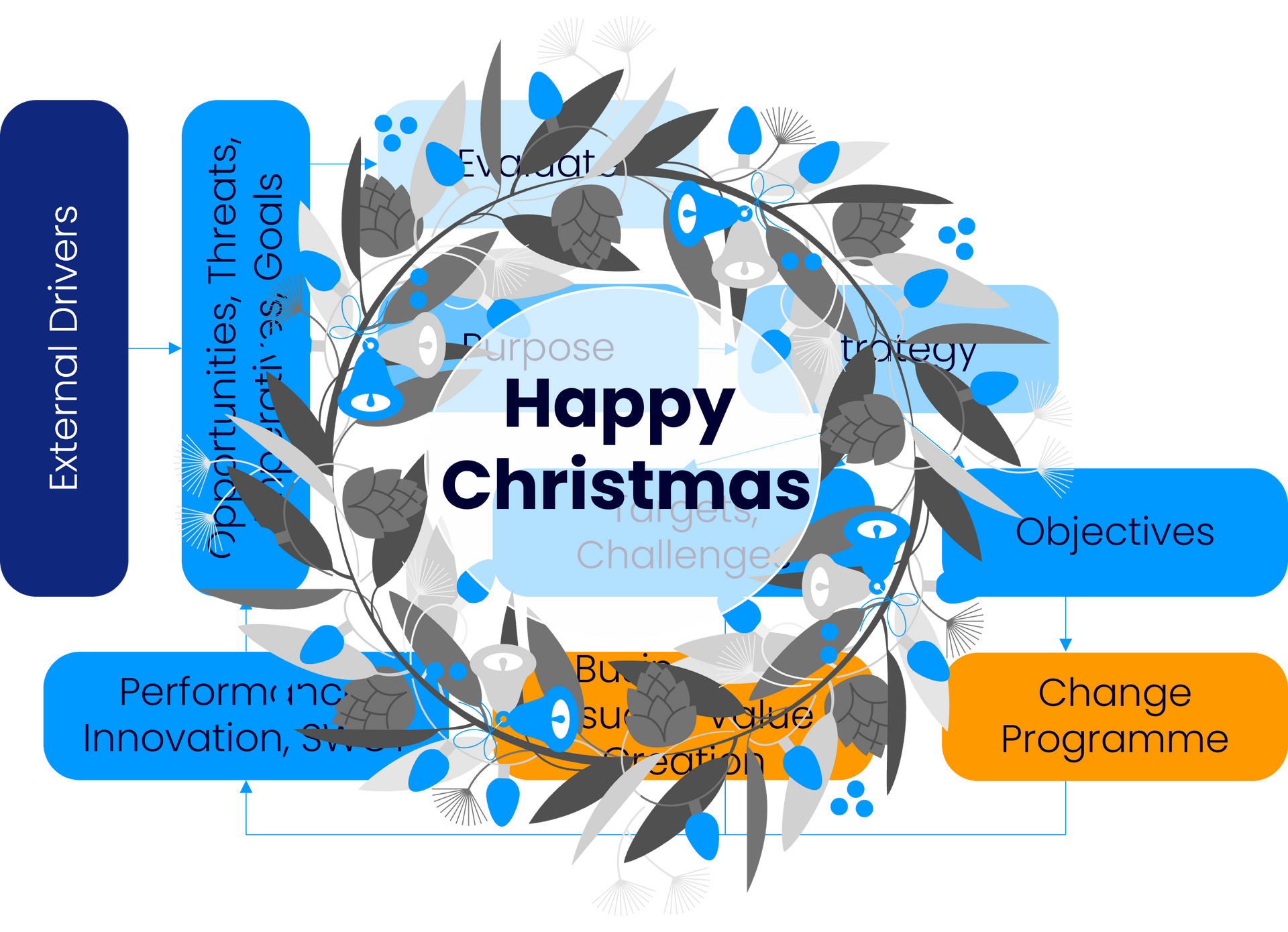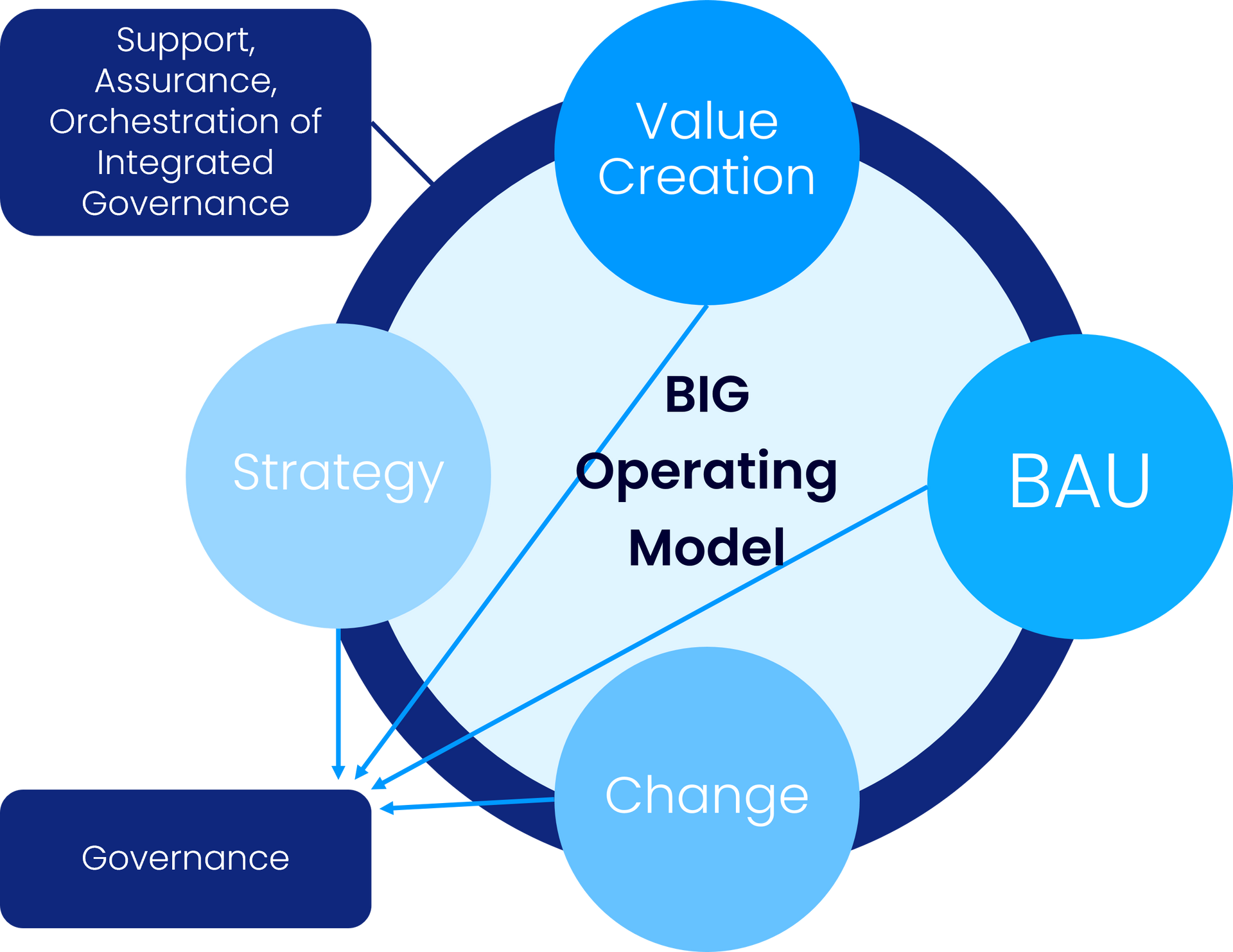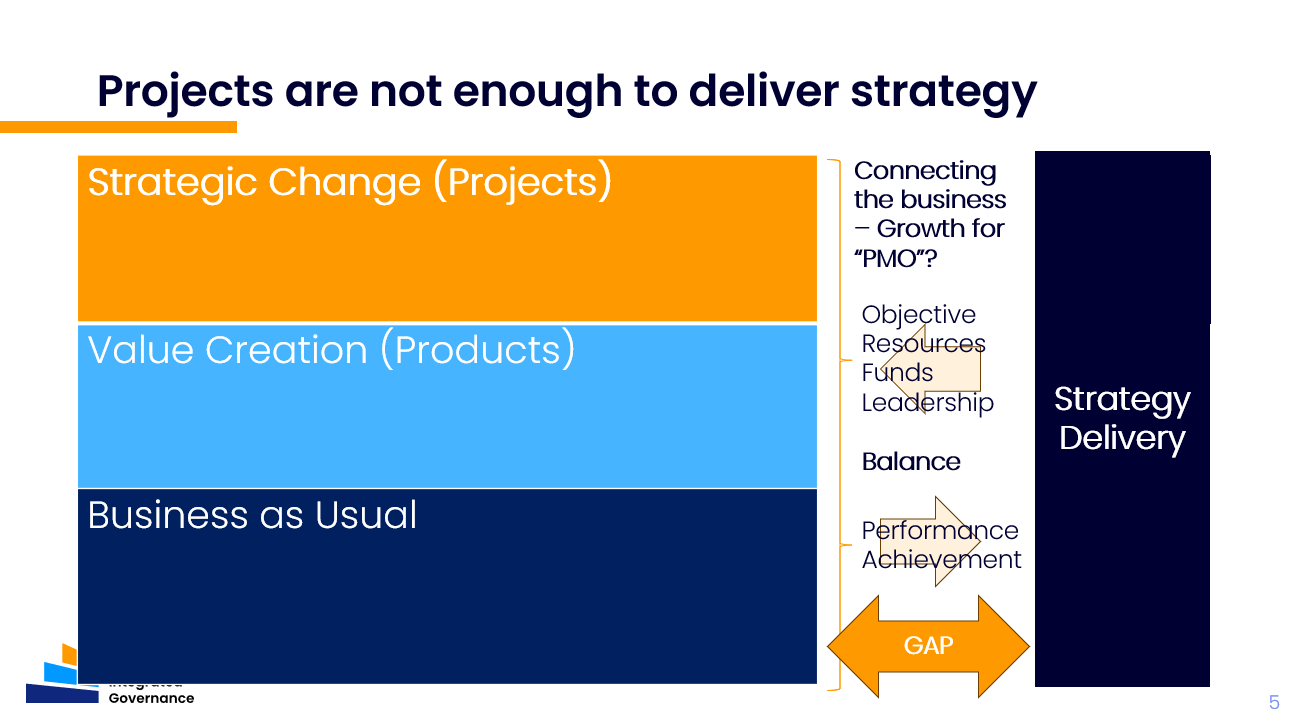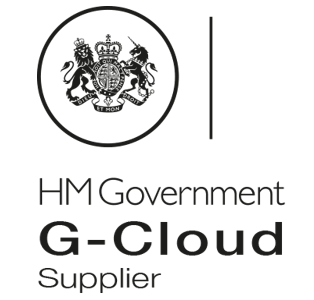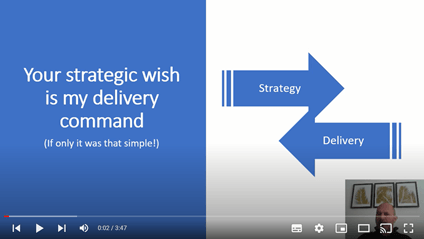
Strategy formulation –
build for manufacture
In pervious blogs, we shared our workshop findings about issues in strategy delivery. We drew conclusions and discussed them in video here. We also discussed the concepts and approach to use to addressing these issues and shared that discussion here.
In the remaining sessions in the series, we move onto specific advice, but before that, this blog highlights the importance of strategy formulation. We argue that the approach to, process and results of strategy formulation may constrain deliverability.
Do you prefer your chocolate chips baked into your muffin, or just sprinkled on top?
Here's the latest article by David Dunning and David Booth about our work to help organisations improve their strategy implementation (with engineering as well as baking analogies!). Let us know what you think!
We all know that if we conceive and design something we need to be able to manufacture it. If we design with thoughts of manufacturability in mind, we will get better results. If we design for manufacture but also engineer our build process at the same time, we’ll be able to bring our concept into reality alongside all the others. We further know that this design will not be our last one, and we will have to adapt our design based on changing market conditions, regulatory imperatives, and innovations we think of. Our design offices do not make a design then pack up. There is much to learn from our engineering colleagues when we talk strategy.

Extrapolating this thinking, strategy is not just about formulation - we have to design for delivery, and integration of that delivery and ongoing strategy adjustment!
Hence - strategic management, organisational eco-system and integrated governance need to work together to enable an organisation to develop and manage its strategy for effective delivery. Building and sustaining these capabilities is key.
Over the last 6 months we have explored the status and perception of strategy implementation within organisations including discussions with senior managers from a wide range of organisations: it is clearly an area of great concern, and one of the problems that is mentioned frequently is the gap between strategy formulation and strategy delivery.
In many organisations it seems as though a disconnect occurs between the development of strategy – the often intensive process of analysis, evaluation, decision making and articulation – and the much longer, more sustained effort that needs to be invested in the effective delivery of the strategy. There could be several reasons for this – which we can envisage if we think of strategy formulation as on ongoing design process, with design for manufacture closely alongside it:
- insufficient focus during the formulation of the strategy on how strategy can be achieved
- it can be delivered (the resources and capabilities required) and progress can be assessed, changes included, and additional drivers responded to
- responsibility for delivery being passed to different parts of the organisation - from the strategy team to the programme management office, for example – with limited ongoing connection
- integration of strategy throughout the organisation. For example, sales strategy and plans needs to be aligned and contribute to the overall corporate strategy
- the challenge of balancing resources to achieve both strategic change initiatives and operational business-as-usual requirements
- limited communication, understanding and motivation: the objectives might be specified but the reasons behind these are not explained, so when something changes there is no dynamic adaptation and adjustment, either to the strategy or its implementation
- so when organisational energy levels dip after the initial momentum of the new strategy, and senior management focus on the strategy ebbs as new operational challenges take their attention
- If strategy is seen as a ‘one off’ that ‘trumps everything’ so ‘just get on with it’ – this posture / culture will not enable the organisation to be ready for ongoing strategy delivery, to sensibly prioritise BAU/Value Generation/Change or to deliver what it has agreed to do effectively.
- there can also be a drift away from focus on strategy goals and outcome progress to focus task status. It is important that delivery teams focus on task, but this must remain connected to the more important bigger picture where management focus on outcome, and then directors can focus on strategic benefits to the organisation – not on reviewing line-by-line RAG [red-amber-green] progress charts on individual projects).
There can be many reasons – and each organisation, each situation will be different. However, there are some key principles that apply:
- Strategy is dynamic. Strategy formulation is not a periodic one-off exercise: things change – externally (markets, regulation, pandemics!) and within the organisation (resources, capabilities, stakeholder priorities). Opportunities, threats and challenges arise: organisations need the ability (the attitude and processes) to be able to sense and respond to these, and to adapt accordingly. We also have to be clear - strategy needs to be integrated across every part of the organisation.
- Strategy involves the whole organisation. Communication, explanation and understanding are vital. Engaging people - taking their ideas for innovation and their viewpoints on achievability when formulating strategy, and enabling them to understand how they will contribute to implementing and realising this – is as much a part of effective strategic management as is analysis and decision-making. All parts of the organisation - from corporate and functions to departments and teams need to be engaged and aligned, with their own objectives, KPIs, plans and resources integrated - and with the means to adjust these dynamically as the situation changes.
- Effective strategic management involves both formulating strategy and working out how it will be delivered. Resources, funds and leadership time has to be balanced across the organisation for performance today and performance tomorrow – and deployed between entities with accountability to achieve ‘run’ and ‘change’; and any changes in the drivers of the strategy can mean that objectives, priorities and resources need to change accordingly.
- Building capability is key. As we heard from so many of those we talked to, many organisations experience challenges in strategy delivery. We know strategy is not one-off, and we know it is dynamic. Investing time and effort to strengthen the organisation’s strategic management capabilities, establish an integrated approach to business governance, and ensure that its ecosystem and culture supports these is essential – but the capability is not just for strategic management – it is capability within which strategic management can also flourish alongside business performance. It is the ability of an organisation to accept, understand and commit to strengthening these capabilities within which strategic management can operate that will most improve its ability to develop and deliver strategy and resultant performance effectively.
Finally - Think of this – would you prefer your chocolate chips baked into your muffin, or just sprinkled on top?
(Are you gong to approach strategy as something to do to your organisation, or to get done within it?)
The Improving Strategy Implementation Workshop illustrates how we transition from collected pain points and expectations to conclusions, responses and solutions based on common sense concepts and a step by step approach, and build in strategy formulation and delivery to our thinking.
Next Session – 2 strategy pathways for strategy improvement
© David Dunning and David Booth 2022
